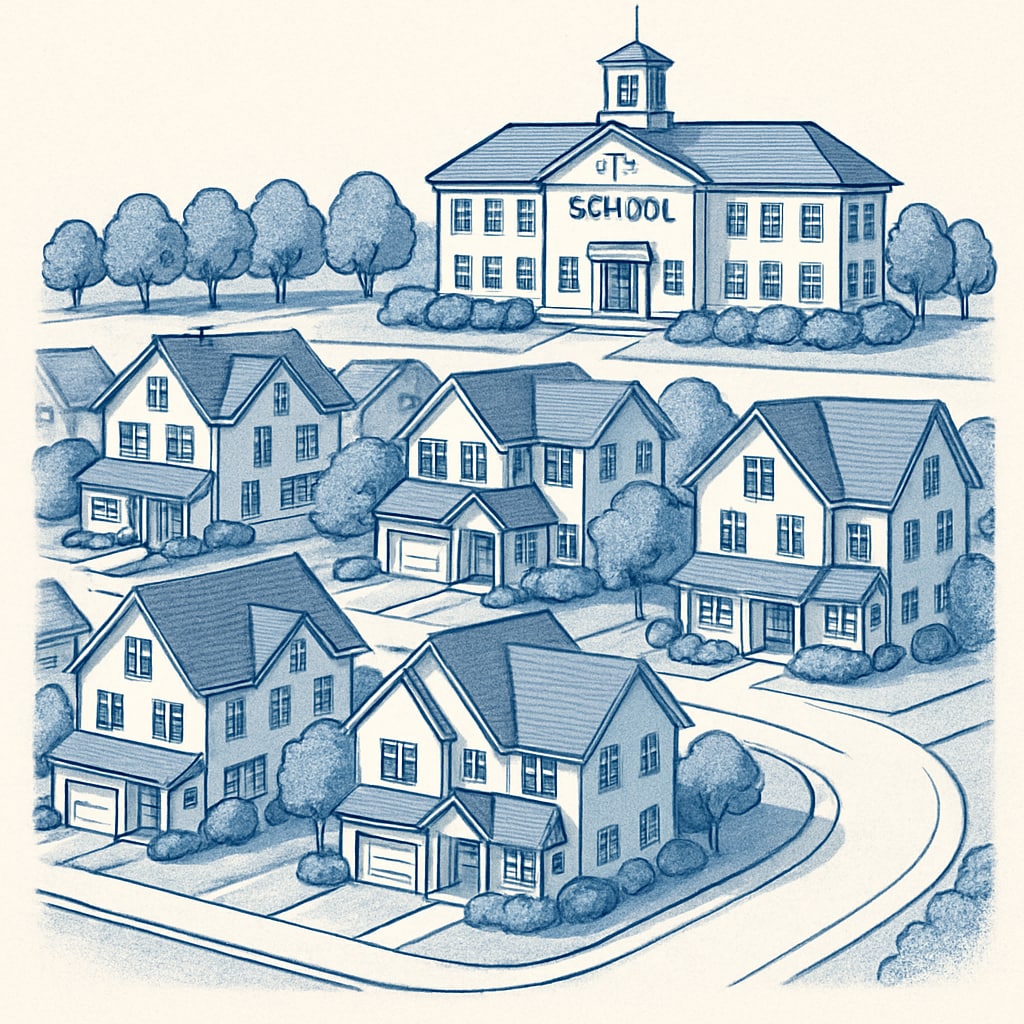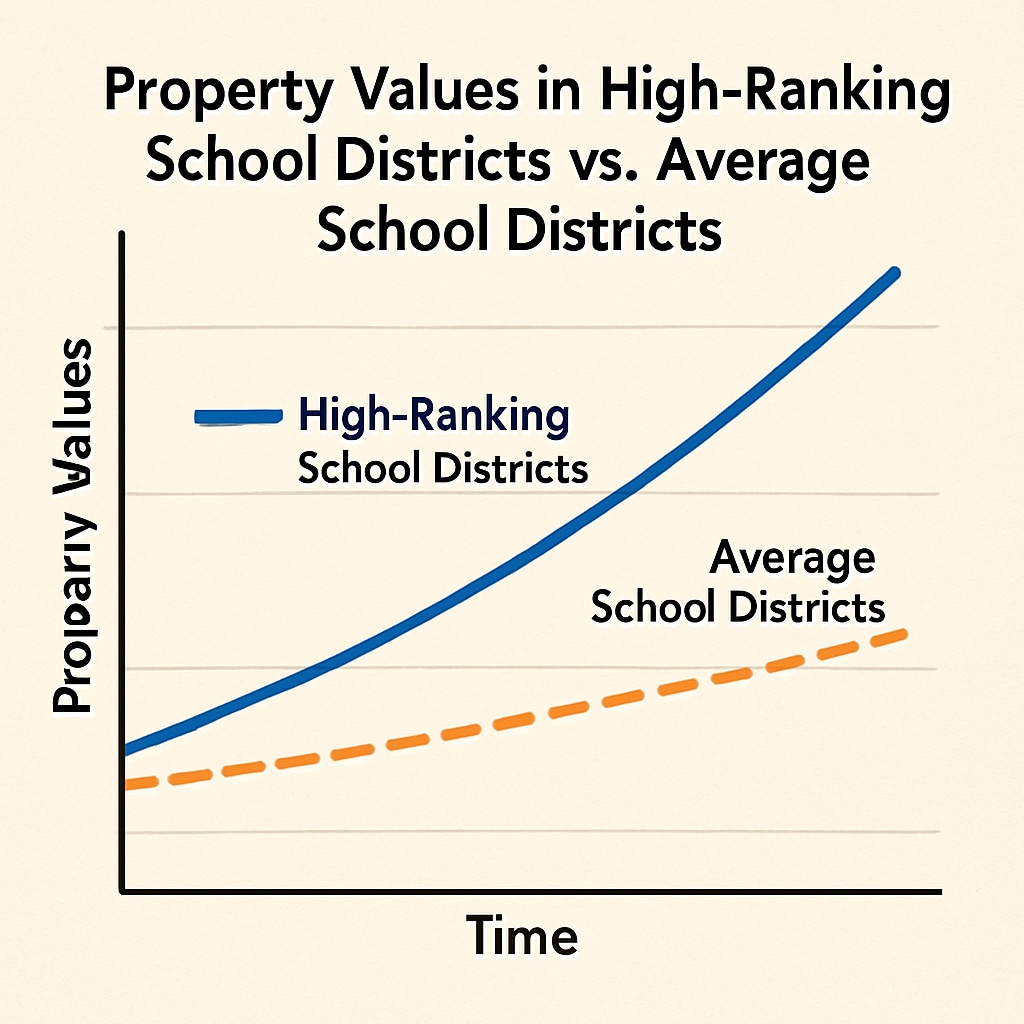The relationship between school district rankings, real estate choices, and education investment plays a pivotal role in shaping the housing market in the United States. Families often prioritize top-notch education when choosing a home, leading to a significant impact on property values. This article dives into the connection between high-performing school districts and real estate investment, offering insights for families seeking to balance educational opportunities with long-term financial growth.
How School District Rankings Drive Real Estate Decisions
School district rankings significantly influence homebuyers’ decisions. Parents aiming to provide the best possible education for their children are often willing to pay a premium for properties located within top-rated districts. According to Realtor.com, properties in highly sought-after school zones can command prices 10% to 20% higher than similar homes in less competitive districts. This phenomenon highlights the strong correlation between education quality and real estate demand.
In addition to pricing, homes within excellent school districts tend to maintain their value during economic downturns. This resilience makes such properties a safer bet for long-term investment. For example, homes in districts ranked highly by organizations like GreatSchools.org often see reduced market volatility, ensuring both educational and financial stability for families.

The Financial Implications of Education Investment
Investing in a home within a top-performing school district often serves as both an educational and financial strategy. While higher property taxes or purchase prices might initially seem daunting, the long-term benefits often outweigh these costs. Families investing in these areas may save on private school tuition while simultaneously growing their property’s equity.
Moreover, homes in reputable school zones attract diverse buyers—from young families to investors—which ensures strong resale potential. For example, a study by the National Bureau of Economic Research revealed that homes in top districts sell faster and often at a higher percentage of their asking price compared to those in average-performing areas.

Making Smart Choices: Balancing Education and Real Estate
When choosing a home, families should consider several factors beyond a district’s academic reputation. Here are some tips for making a well-rounded decision:
- Research school performance: Use tools like GreatSchools.org or niche.com to explore academic ratings, extracurricular activities, and parent reviews.
- Examine property trends: Look at historical pricing data in the area to assess whether the investment aligns with your financial goals.
- Consider commute and amenities: While a top school is crucial, proximity to work, parks, and shopping centers also impacts quality of life.
- Think long term: Evaluate the property’s potential resale value and how it aligns with your family’s future plans.
By balancing these factors, families can maximize both educational opportunities and property value growth.
The Broader Impact of School District Quality
Beyond individual decision-making, the quality of school districts has a cascading effect on communities. High-performing schools often lead to safer neighborhoods, better infrastructure, and increased community engagement. This virtuous cycle enhances the desirability of the area, further driving up property values and attracting diverse residents.
However, this dynamic also raises concerns about affordability and accessibility. As demand increases, lower-income families may face challenges in accessing these high-value areas, potentially widening educational and economic disparities. Policymakers and communities must work together to address these inequities while maintaining the benefits of strong school systems.
In conclusion, understanding the relationship between school district rankings, real estate choices, and education investment is essential for families navigating the housing market. By prioritizing both academic quality and financial sustainability, homeowners can make informed decisions that lead to long-term success.


